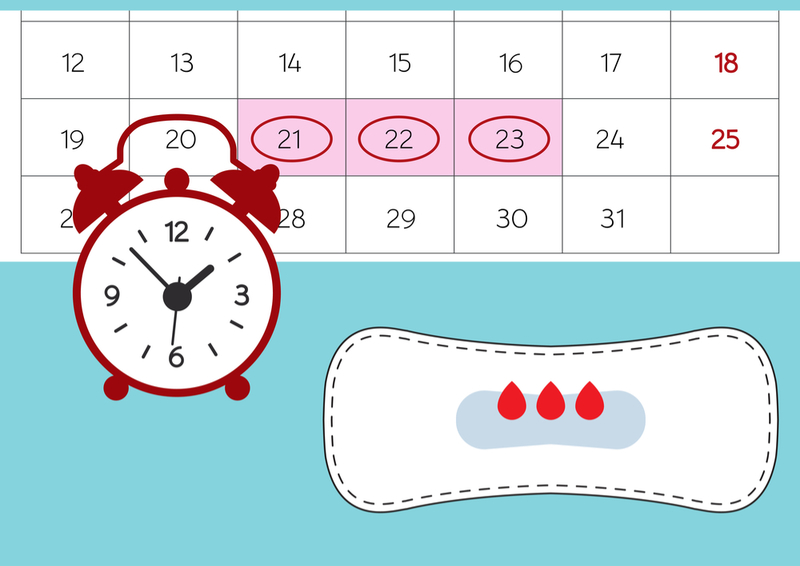Postponing Periods: How doctors can guide patients on the 'pills' and the 'process'
M3 India Newsdesk May 07, 2018
In this article, we discuss a well-known reality in Indian families- postponing periods; and also give some pointers on how doctors can help patients navigate such situations.

Postponing menstrual periods for trips and vacations, familial and religious functions is a clandestine, yet well-known reality in India. While most of it remains unacknowledged in wider circles, women are well aware that it is something routinely done by many women across the country. However, since menstrual periods and the hormones governing them are a critical element of the human body, they needed to be dealt with care.
Naturally, doctors need to anticipate these issues, which may not be openly spoken about by their patients.
Here we give out some pointers on how doctors can help patients navigate this process:
Provide basic scientific orientation regarding the gravity of periods
Gynecologists often complain that women find it too easy to pop a pill to ‘manage’ their periods, however, very few still know the science behind the hormonal interactions that go into the process of menstruation. Gynecologists should counsel women regarding this topic when women come up with this query. While modern hormonal pills are not unsafe or problematic in short doses, they may have some unintended impact and individual side-effects which patients need to be prepared for.
Caution patients about the type of pills
Some drugs such as Norethisterone work by keeping progesterone levels higher, hence preventing the natural shedding of the uterine lining, however, the National Health Service of the UK advises that it should not be taken for more than 17 days, since it may cause some long-term disruptions in cycles.
The other type of combined contraceptive pills, which are taken back-to-back, without the mandatory 7-day break also stop periods for the time being. However, here too, it is inadvisable to be constantly on this form of medication for more than three months at a stretch, and that too, not too frequently. Many women experience breakthrough bleeding through this regimen, which is an additional form of discomfort.
Other types include progestogen-only pills and phased contraceptive pills, all of which are actually meant to treat gynecological disorders rather than postpone periods are again to be used with caution, since they can lead to side-effects such as heavier bleeding, mood swings, and breast tenderness.
Overall, doctors need to counsel their patients about the types of tablets that can be taken, and should strongly caution against asking friends about which tablet they took for postponing their periods since all tablets are not appropriate for everyone, and sometimes, taking tablets to counter the physical problems associated with periods may, in fact, give rise to a different, more troublesome set of problems.
Consider the history
It is immensely important to consider the medical history of the woman before she takes any such medications. Norethisterone is unsuitable for women who have a family history of thrombosis, while combined contraceptive pills are unsuitable for those with a history of migraine.
Each type of pill has a significant list of contraindications which doctors consider before prescribing. Doctors need to educate patients regarding such contraindications when women ask for such medications.
Speak to the spouse
While the situation may not be as bad now, women sometimes take these decisions without the knowledge of the husband, especially when the reason is a family function or a religious event. Sometimes, doing this may be avoidable altogether. Current trends are that husbands tend to understand the implications of taking such medications and may even be able to dissuade the woman from taking such medications.
Regarding the pressure on women to postpone their periods during religious festivals, these are areas based on old taboos which consider some women ‘impure’ during their periods, which in itself a problematic reason to take such tablets. Hence, some education may go a long way into women and their husbands accepting and even appreciating this biological reality and not taking any unnecessary medications for frivolous reasons.
Long-term effects are unknown
Most hormonal contraceptives provide relatively harmless experiences while in some cases, also providing mild protection against future gynecological cancers.
Norethisterone specifically has some risks and side-effects associated with its use. Minor side-effects associated with hormonal contraceptives can include weight gain, bloating, breast tenderness, headaches, and acne.
Caution against unsound advice
The internet has many improbable and downright weird ways of ‘managing’ periods when necessary, some of which including consuming gelatin or vinegar, which can be extremely dangerous. In such cases, it is necessary to let women know that menstrual cycles can only be affected by hormones and not by any other substances.
Yet again, it is necessary to caution against unnecessarily tampering with one's natural cycle, but if they absolutely need to do it and are medically fit to do so, it is best to do it under the guidance of a doctor.
If possible, many options are available for reducing the pain and problems associated with periods. Pain, bloating, aches can be symptomatically treated by simple medications which are much safer and less long-lasting in their impact on the body. For dealing with issues such as heavy bleeding, special, more convenient absorbents such as menstrual cups and cloth pads, offer a better menstruation experience. For those women whose main worry is the pain or problems associated with menstruation, it is possible to mitigate them through means other than hormonal tablets.
Overall, changing menstrual cycles has to be handled with care, even though medical advances have made hormonal tablets much safer and have reduced side-effects drastically. Doctors can help with a combination of education and advise on the rational use of drugs to facilitate this process for most women.
-
Exclusive Write-ups & Webinars by KOLs
-
Daily Quiz by specialty
-
Paid Market Research Surveys
-
Case discussions, News & Journals' summaries